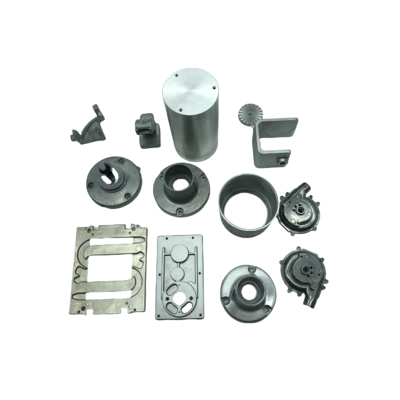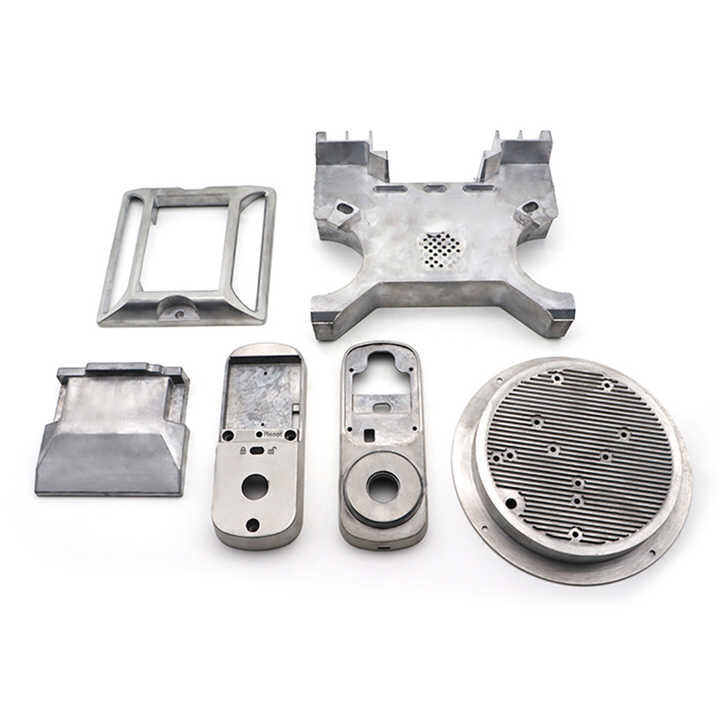The Impact of Cutting-edge Factory Services on Sustainable Production Practices
Innovative factory solutions play an essential duty beforehand lasting production methods. By incorporating reusing technologies and energy-efficient procedures, these services significantly lower ecological impact. Shops can reclaim valuable products, thus decreasing dependancy on virgin resources. As automation and lean production principles get traction, manufacturing effectiveness is maximized. However, the full extent of these innovations and their implications for the future of manufacturing continue to be to be explored.
The Role of Advanced Recycling Technologies in Foundries
Advanced recycling technologies are transforming the landscape of factories by improving material healing and lowering waste. These innovative procedures allow factories to reclaim important metals and materials from scrap, reducing reliance on virgin sources. By integrating innovative sorting, shredding, and melting techniques, shops can effectively remove useful materials from disposed of items, thus advertising a circular economic situation.
These technologies support the production of premium alloys and elements, making sure that recycled products meet rigid sector requirements. As an outcome, shops are not just boosting their product efficiency however additionally reducing the ecological impact connected with standard manufacturing approaches
This shift towards progressed reusing not just bolsters financial practicality for foundries but also lines up with worldwide sustainability goals. Ultimately, the unification of these technologies stands for a considerable action ahead in the mission for sustainable manufacturing methods within the shop field.
Energy Performance: Lowering Consumption in Manufacturing Processes
Power performance in producing processes is critical for lasting procedures. Strategies such as process optimization methods, renewable resource assimilation, and waste warm recovery play crucial duties in lessening power usage. By concentrating on these areas, suppliers can considerably decrease their environmental influence while boosting productivity.
Refine Optimization Techniques
A substantial variety of producing facilities are significantly adopting procedure optimization strategies to improve energy performance and lower usage. These techniques include examining and improving production workflows, determining bottlenecks, and executing automation to simplify operations. By leveraging information analytics, producers can keep an eye on energy usage in real-time, allowing proactive adjustments to lessen waste. Strategies such as Lean Production and 6 Sigma focus on eliminating inefficiencies and maximizing resource appropriation. Furthermore, advanced innovations like Web of Things (IoT) sensing units supply insights right into tools performance, helping with predictive upkeep that stops energy loss. In general, these procedure optimization approaches not just contribute to decreased power consumption but additionally cultivate a society of continuous renovation within producing environments, straightening operational practices with sustainability objectives.
Renewable Resource Assimilation
Numerous production centers are increasingly incorporating renewable resource resources to improve total energy efficiency and reduce reliance on typical power grids. This modification consists of the adoption of solar, wind, and biomass energy, which can substantially reduce operational expenses and lower carbon footprints. By making use of these lasting energy sources, producers not only decrease their ecological impact yet also enhance power resilience. In enhancement, incorporating sustainable power systems usually involves sophisticated modern technologies such as power storage space and smart grid options, which maximize power usage and help with real-time tracking. This combination sustains suppliers in achieving regulatory compliance and meeting sustainability goals while promoting advancement in manufacturing procedures. Inevitably, renewable resource combination represents an essential change towards even more lasting production techniques and lasting stability.
Waste Warm Recovery
Incorporating renewable power sources sets the stage for additional developments in power efficiency, especially via the execution of waste heat recuperation systems. These systems record excess thermal power generated during producing processes, which would or else be shed to the setting. By repurposing this warmth, factories can considerably decrease their power consumption, reduced operational expenses, and decrease their carbon footprint. The recovered heat can be utilized for various applications, such as home heating, power generation, or pre-heating basic materials. Consequently, waste warmth recuperation not just improves energy performance yet likewise adds to a sustainable production model. Innovative shop services that prioritize this technology are leading the way for an ecologically accountable industrial landscape, straightening profitability with eco-friendly stewardship.
Making Use Of Eco-Friendly Materials in Shop Procedures
As the demand for lasting manufacturing techniques expands, foundries are increasingly transforming to environment-friendly materials to enhance their operations. By including lasting choices, such as bio-based binders and recycled steels, factories can substantially lower their ecological impact. These products typically require less power go for handling and can decrease unsafe emissions during production.
Additionally, the adoption of environmentally friendly materials not only straightens with regulative requirements but likewise fulfills consumer choices for greener items. Factories are discovering ingenious options, such as utilizing natural ingredients that boost mold high quality while continuing to be non-toxic.
The shift to sustainable materials promotes a round economic climate by advertising resource reuse and reducing waste. In addition, this adjustment can enhance the total effectiveness of foundry operations, as green products typically display premium homes, leading to enhanced product performance - Aluminum Foundry. Inevitably, the application of environmentally friendly materials represents a crucial action towards sustainable manufacturing in the foundry sector

Technologies in Waste Management and Reduction Techniques
The shift in the direction of environment-friendly products in shop procedures paves the way for advancements in waste administration and reduction strategies. Ingenious factory solutions are progressively taking on approaches that reduce waste generation and promote recycling. Techniques such as closed-loop systems permit for the reuse of materials, significantly minimizing the quantity of waste created throughout manufacturing procedures. In addition, advancements in filtration and splitting up technologies allow the efficient recovery of beneficial spin-offs, which can be rehabilitated into the production cycle.
The application of real-time monitoring systems supplies data-driven understandings into waste generation patterns, facilitating educated decision-making to optimize source use. Foundries are additionally discovering biowaste options, transforming organic waste right into power or usable products, better promoting sustainability. These innovations not only add to a round economic climate however additionally enhance the total environmental efficiency of foundry operations, emphasizing the sector's commitment to reducing its eco-friendly footprint.
The Effect of Automation on Sustainable Production
While lots of sectors aim for sustainability, automation emerges as a necessary element in improving lasting production techniques within foundries. By incorporating automated systems, factories can achieve better effectiveness, minimize waste, and reduced power consumption. Automated processes enable specific control over manufacturing specifications, minimizing defects and remodel, resource which consequently conserves sources.
In addition, automation helps with the tracking of ecological effects, allowing real-time changes that straighten with sustainability objectives. aluminum casting. Advanced robotics and expert system can optimize material use, bring about significant reductions in scrap and discharges
In addition, automated technologies promote more secure workplace by dealing with hazardous jobs, thus enhancing worker health while making certain conformity with environmental laws. In general, the adoption of automation within shops not only improves procedures however also plays a crucial duty in progressing sustainable production practices, adding to a much more responsible commercial landscape.
Instance Researches: Effective Application of Sustainable Foundry Practices
Successful application of lasting practices in factories can be illustrated helpful hints via various study that highlight measurable outcomes and cutting-edge methods. One notable instance is a mid-sized foundry that took on a closed-loop water recycling system, lowering water usage by 40% and lowering wastewater generation. Furthermore, this facility transformed to making use of green mold materials, which not just better item top quality but also boosted worker safety.
Another substantial situation entailed a big foundry incorporating sustainable energy sources, such as photovoltaic panels, which balance out 30% of its power requires. This effort not only decreased functional costs but likewise added to a considerable decrease in carbon exhausts.
A foundry that executed lean production techniques reported a 25% boost in efficiency, leading to much less material waste and optimized manufacturing procedures. These situations jointly highlight the substantial advantages and sustainability innovations attainable via cutting-edge foundry techniques.
Often Asked Concerns
Exactly How Do Ingenious Foundry Solutions Contribute to Overall Sustainability Objectives?
Cutting-edge factory services enhance total sustainability goals by optimizing source usage, lowering waste, and improving power effectiveness. These innovations add to reduce carbon impacts and promote ecologically responsible techniques within the manufacturing field, supporting more comprehensive sustainability initiatives.
What Are the Economic Conveniences of Taking On Sustainable Foundry Practices?
Taking on lasting shop techniques can minimize functional expenses, boost resource performance, and enhance competitiveness. Furthermore, these practices can bring in eco-conscious customers and investors, inevitably causing increased productivity and lasting economic stability for companies.
Just How Can Tiny Factories Apply Sustainable Innovations Successfully?
Tiny factories can implement lasting innovations successfully by adopting energy-efficient innovations, maximizing resource use, educating staff on lasting techniques, working together with suppliers for eco-friendly products, and taking part in continual enhancement processes to decrease waste and exhausts.
What Accreditations Exist for Sustainable Factory Operations?

How Do Consumer Preferences Influence Sustainable Manufacturing in Foundries?
Consumer choices greatly affect lasting production in shops by driving need for green items. As customers focus on sustainability, factories adapt their techniques, including greener products and innovations to meet market expectations and enhance their affordable advantage.
By repurposing this heat, shops can considerably reduce their power intake, lower operational prices, and reduce their carbon footprint. Shops are likewise checking out biowaste solutions, transforming natural waste into energy or usable products, better advertising sustainability. By incorporating automated systems, factories can accomplish better effectiveness, minimize waste, and lower power usage. Another substantial situation involved a large shop integrating eco-friendly power sources, such as solar panels, which offset 30% of its power needs. Cutting-edge foundry solutions boost total sustainability objectives by optimizing source usage, decreasing waste, and boosting energy efficiency.